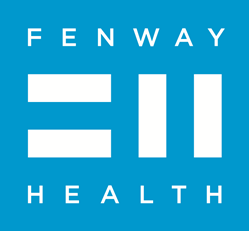
Given the persistent inequities in health care outcomes experienced by LGBTQIA+ patients that are rooted in societal stigma and discrimination, it is imperative that we build a health care workforce that can provide culturally responsive and technically skilled care to LGBTQIA+ people.
BOSTON (PRWEB)
November 29, 2022
A paper published in LGBT Health reports on the impact of a four-week elective course at Harvard Medical School that prepares students to become physician-leaders in LGBTQIA+ health care. The course is one of the few available to medical students that provides opportunities for direct care experiences with patients, mentored scholarship, and instruction across a variety of medical specialties and patient age ranges. The paper suggests that the course can serve as a model for how to structure meaningful training experiences for medical students interested in becoming physician-leaders in LGBTQIA+ health care.
“While training opportunities in LGBTQIA+ health care have expanded greatly over the past decade, most only provide a few hours of instruction, no opportunities for clinical care, and fail to address the full range of learning goals and competencies defined by the Association of American Medical Colleges,” said senior author Dr. Alex S. Keuroghlian, who directs the National LGBTQIA+ Health Education Center at The Fenway Institute and the Massachusetts General Hospital Psychiatry Gender Identity Program. “Given the persistent inequities in health care outcomes experienced by LGBTQIA+ patients that are rooted in societal stigma and discrimination, it is imperative that we build a health care workforce that can provide culturally responsive and technically skilled care to LGBTQIA+ people.”
Between January 2016 and February 2022, 30 medical students completed the LGBTQIA+ health elective course. The course is available to one student per month during the academic year. Students spend approximately 150 hours over four weeks embedded in approximately 10 clinical practices, including primary medical care for children, adolescents, and adults; gender-affirming care; endocrinology; sexual health; HIV prevention and treatment; obstetrics and gynecology; dermatology; homeless health services; and immigrant health services. Clinical sites include teaching hospitals and federally qualified health centers.
Twelve of the 30 students who completed the training published articles in peer-reviewed journals based on scholarship completed during the four-week course. All of the students who completed the course evaluation rated the training as excellent. Students also reported that they found value in having clinical experiences with a diversity of patient populations across myriad practices and specialties.
“The success of this course demonstrates the feasibility of creating a four-week advanced clinical and scholarly elective on LGBTQIA+ health care,” Keuroghlian added. “Our findings suggest that this course can serve as a model for how to structure meaningful training experiences for medical students.”
“A Novel Medical Student Elective Course in Lesbian, Gay, Bisexual, Transgender, Queer, Intersex, Asexual, and Sexually and Gender Diverse Health: Training Tomorrow’s Physician-Leaders,” was published online on November 9, 2022.
Share article on social media or email:

